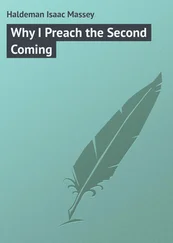Iwatch her shadow as she stalks across the courtyard, her heels stabbing the sand. She avoids the patch of the principal’s Ireland and steps up into the open door of his office. He’s either on the phone or about to be, his big hand reaching for it. Who he talked to we never knew, although he always seemed to be ordering supplies and books we never saw.
I’m doing a reading-comprehension drill. I have just read them a story about a mischievous boy named Tom and his wily teacher, Sir Joseph Blinks. Now the question is: Why does Sir Blinks mistrust Tom?
I stand near my open classroom door. I hear her ask for construction paper. I look back at my class. Most have their heads down and are doing their best to write something, except for Rubrecht Kanhala, who knows I’m only trying to run out the clock before third-period break. He’s thumping the end of his nose with a pencil. Sir Blinks doesn’t know shit.
I step out and wander halfway up the porchway and listen.
“You need to fill out a requisition form.”
“Give me a form, then.”
“The forms are finished.”
A long silence. Outside Pohamba’s class a boy whacks two erasers together and gags on the chalky smoke.
The principal is sitting. Mavala is standing. His finger is poised in mid-dial of the rotary. She watches his face. If only she’d slacken a little, this young sister of his wife, and behave more like a woman is supposed to. He could make things easier for her. She need not acknowledge his authority — of course she needn’t go that far — but for God’s sake, won’t she look at his existence as flesh, as a man with hands and blood and cock and need and eyes?
I don’t have to see any of this — it’s all there in the silence. Power is easily spent — you can always get more later — but as far as she’s concerned, he can keep it and play with it. He sees this, and it only makes him sweat watching her. Her: Go ahead. Cower beneath me with your principal stomach, your principal key chain, your principal phone in your hand. She doesn’t leave, only stands there, in her sleeveless blouse, with her bare shoulders. Stands there like a taunt. A few minutes more she’s in that office. Maybe she’s going too far — stepping on him too much, too easily, too early. She hasn’t been back a month. There’s no more talk of construction paper or forms.
She leaves empty-handed and heads back across the courtyard — this time she tromps straight across Ireland — toward her class, which is waiting silently (itself a miracle at Goas). She’ll ask Obadiah for some construction paper. No, a better idea. She’ll take her boys to the veld and let them draw on the rocks like Bushmen. A few minutes later, I watch them file out, her ducklings, two by two.
What does she want, then?”
“Not to be a teacher, obviously.”
“Who wants to be a teacher?”
“Not me.”
“You degrade the profession. Shame —”
“Well, she was probably expecting more. Look at Libertine Amathila. Now she’s Minister of Health. Didn’t they name a boulevard after her in Otjiwarongo?”
“But Libertine Amathila’s a doctor. SWAPO sent her abroad to study. Easy to come back to the country a hero when you’re a doctor.”
“And now she’s got her own avenue!”
“Boulevard!”
“Yes, even better!”
“Miss Tuyeni says one day she just left and crossed the border. They didn’t hear from her for two years. They thought she was dead.”
“How old?”
“Seventeen or so. The mother nearly died of grief over it.”
“How did she come to teaching if she hates it so much?”
“She taught school up in the camp.”
“Teacher and a soldier?”
“Yes.”
“Not the only one.”
“Who else?”
“I’d rather not boast.”
“Well, it’s understandable.”
“What is?”
“To want more after something like that. After committing so much to the cause, wouldn’t you expect —”
“What? More than Goas? Everybody deserves —”
“Always more. Why can’t anyone ever —”
“And the kid?”
“Ah, yes — the child.”
“That child’s demonic.”
“Shush — that’s a beautiful lamb.”
Just past noon and the boy is, at last, sleeping beneath the kitchen table. Difficult, the girl said, as if the child was a problem to solve. Now she understands. There’s some rage within him — his little fists are constant. Unless, like now, he’s sleeping, his anger gone. As if sleep possesses us, infuses us with a goodness that isn’t really us. She peeks at the boy, at his tiny unclenched hands, at his dirty elbows, at his stomach rising and falling. Or what if it is us? What if asleep is the only time we are true? If so, who are we when we’re awake?
She takes Obadiah’s glasses out of her apron. Often he declares them lost and she finds them at various places around the farm. She begins to read.
Most days she lets the wind decide the page. Other, rarer times, like now, she goes back to the beginning.
The beginning? Does one remember being born? I was always at Goas. Even before I was at Goas, I was at Goas. Before the dry land was the water and the firmament. Out this window, I see the dry land. At night, I see the firmament. Where’s the water?
They say there was an ocean here once. It must have dried up.
And the boy, scrambling out from under the table, makes for the door.
Two souls abide, alas, within my breast,
And each one seeks riddance from the other.
The one clings with a dogged love and lust
With clutching parts unto this present world.
The other surges fiercely from the dust
Unto sublime ancestral fields.
GOETHE, FAUST
Istand before this mirror an orphan. Of my own body I would say I have decidedly mixed feelings. It is tall. It carries my head. It seems my left leg is longer than my right, but this has never been proven. There are days when I see my feet as if from a great distance. When I was young, in my vanity, I favored turtleneck sweaters to accentuate what I considered to be my Corinthian neck. That I am now ugly is of no concern. My mottled, sagging skin. My berried nose. That my face fails to present my beauty and originality is not a failure of my maker. Rather, it is a testament to the unsung nature of my uniqueness. That the philistines cannot recognize my soaringness only makes it truer. More than truth. Is there a higher highest? A truthlier truth? My head carries my thoughts and my legs carry my body. And yet touch — physical — I long for it again. Don’t you remember? When you used to do do do Meneer Oblongsky? Remember? Your thimbled fingers? When I was poor but also beautiful? Now I’m poor and ugly? Meneer Oblongsky hangs limp like a wrung chicken’s neck, and still I’m sick with desire? Lame men make lusty husbands? Would it were so, Poet. Now I ride the donkey by memory. And yet it isn’t merely youth I lust for, but last week. Give me back last week. My Antoinette in her chair rubbing her feet with camphor.
and shall cleave unto his wife: and they shall be one flesh.
Love? You want to know where love went?
Easy. Same place as all the water. Now enough. I have stomachs to satisfy.
Читать дальше












